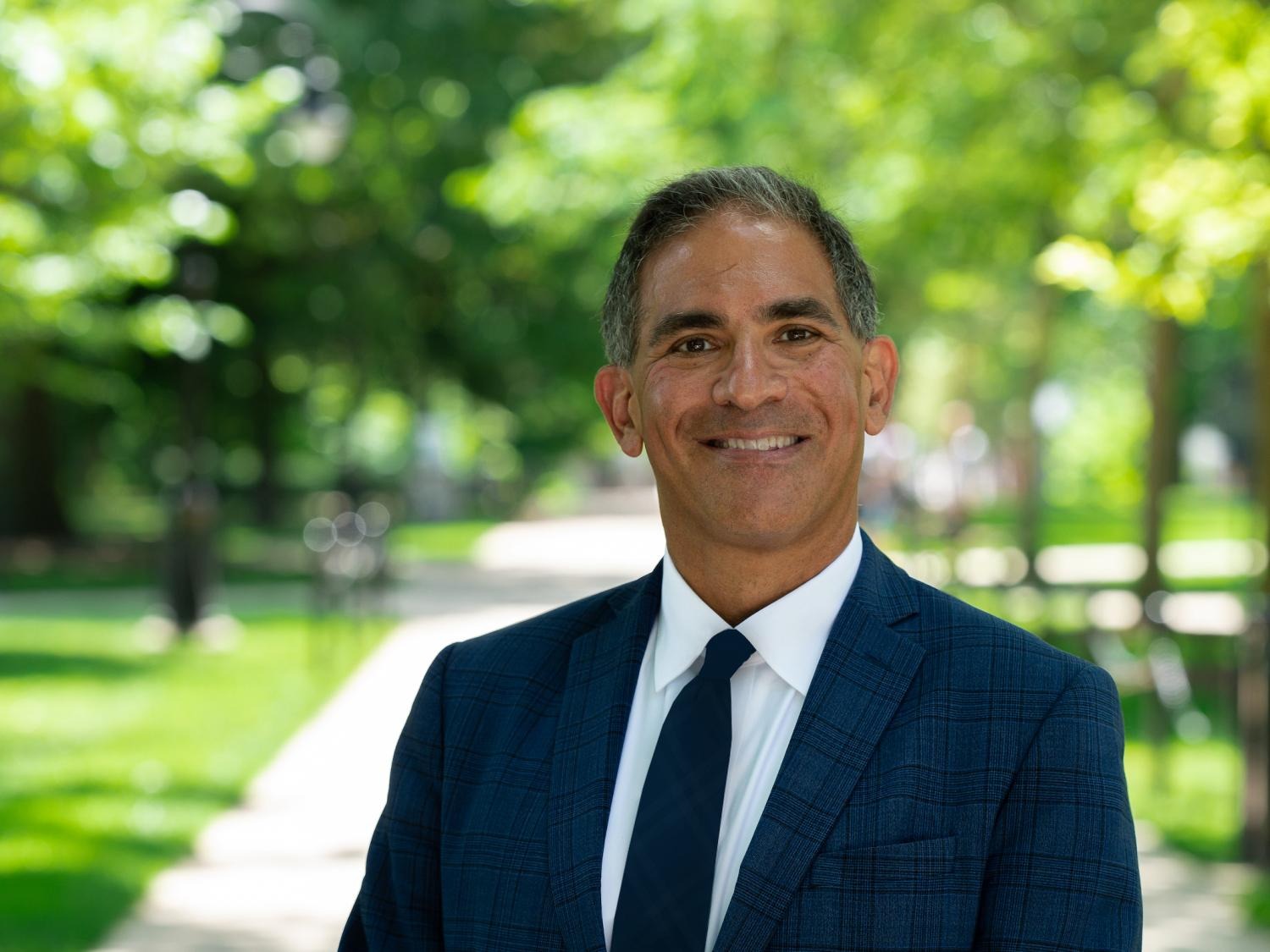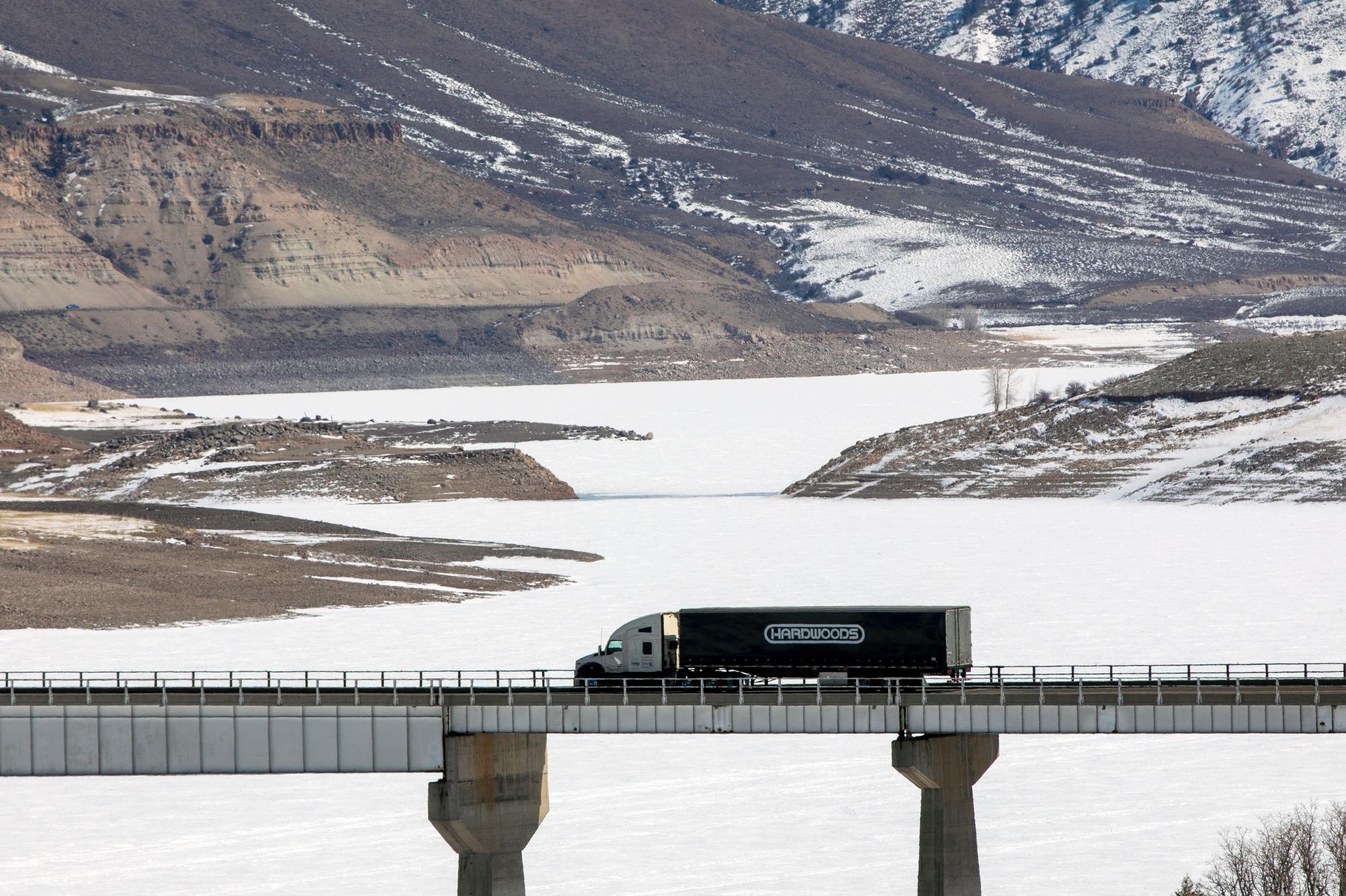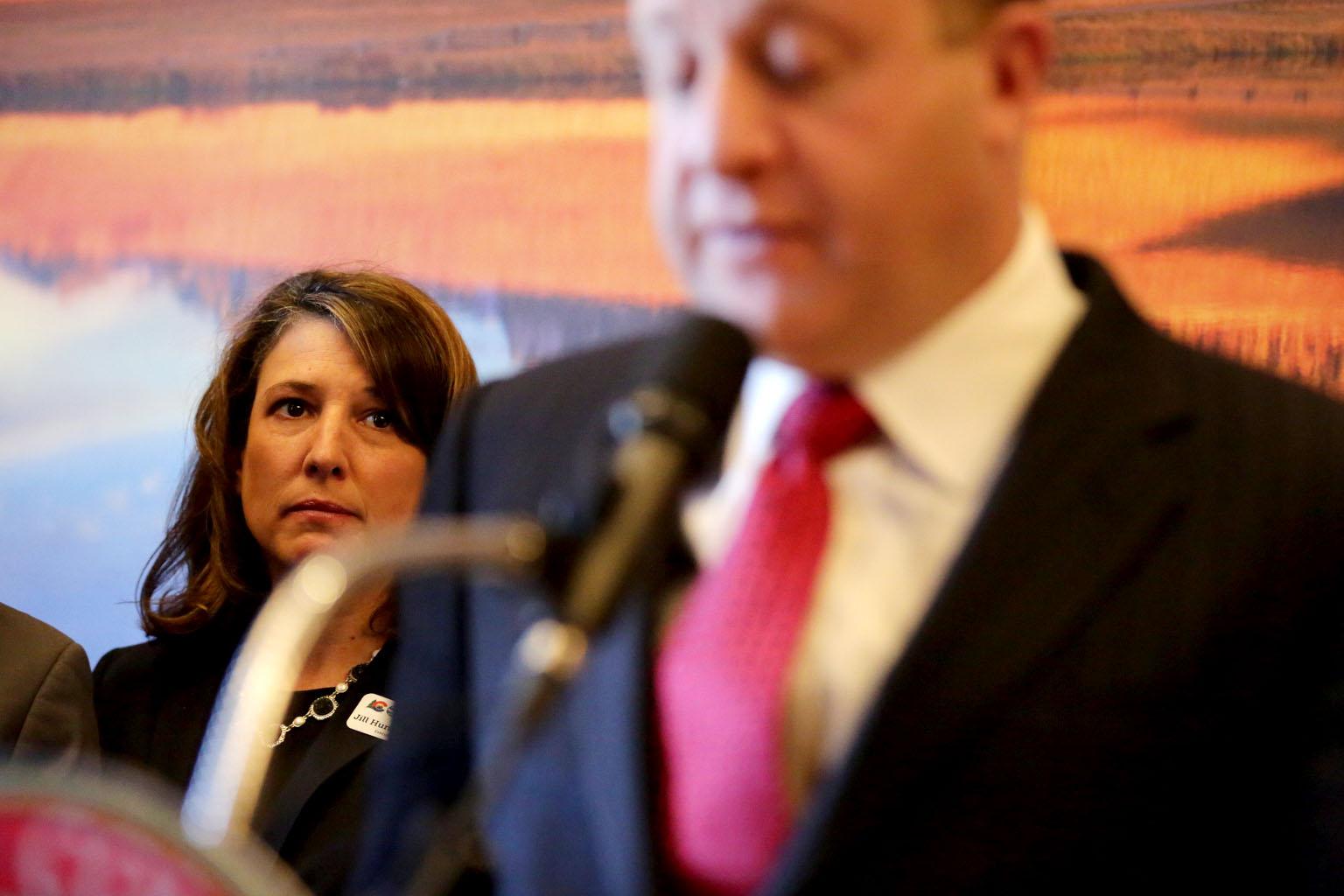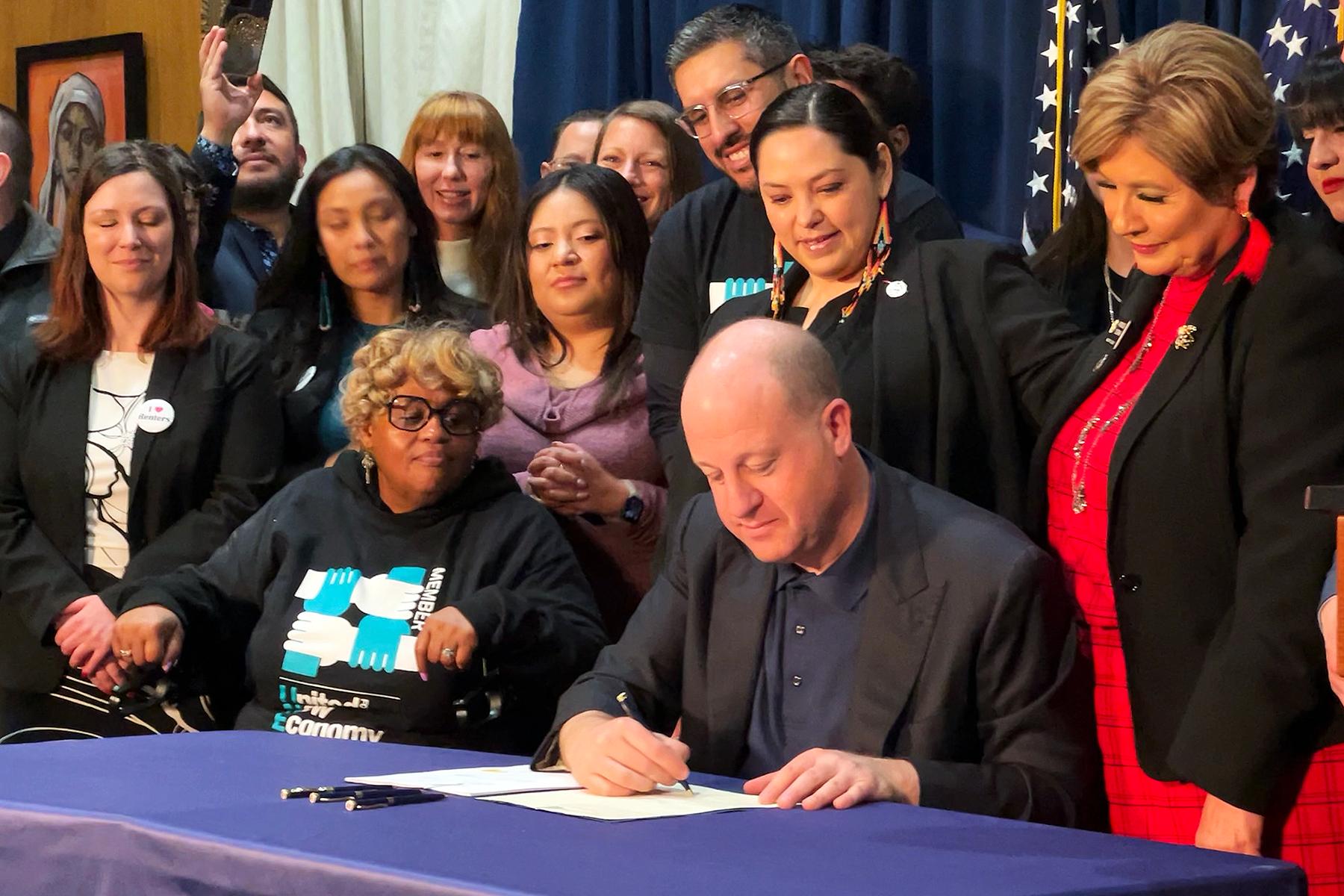
 People in Las Vegas are trying to navigate life after a mass shooting. Last week they got some help from some Coloradans affected by the shootings at an Aurora movie theater in 2012 and at Columbine High School in 1999.
People in Las Vegas are trying to navigate life after a mass shooting. Last week they got some help from some Coloradans affected by the shootings at an Aurora movie theater in 2012 and at Columbine High School in 1999.
The Coloradans called themselves the "HOPE Crew" and took care packages to some of those still dealing with the Oct. 1 shooting that killed 58 people and injured hundreds in Las Vegas. It's part of an effort called "Project HOPE Baskets," organized by Aurora theater shooting survivors Katie and Caleb Medley and their sister Megan Medley. The Medleys want to bring the project to other communities in need of healing.
On that Las Vegas trip were Maria Carbonell and her daughter, Anna Leece Padilla. They were at the Century 16 theater in Aurora on July 20, 2012, when a gunman killed a dozen people and injured about 70. They tell Colorado Matters they wanted to bring a message of hope to Las Vegas but were also struck by the fact that many shooting survivors live elsewhere and may have returned to communities that can't fully comprehend what they've been through.
Anna Leece Padilla on the connections she was able to make:
"I think the trip went really well. Of course some parts of it were hard but I think for the people who are in Vegas, it's comforting to see people like us who are mostly normal just doing everyday things, seeing that we're okay and, like what my mom said, just finding a new normal is possible. I think it was really cool to spend time with Katie and Caleb because I've never really spoke to them but during this time it was pretty awesome to actually even spend that time with them. It was also hard, too, knowing Caleb's situation, knowing that I walked out of the theater physically okay but for him his life is forever changed. It reminds you to just be grateful everyday because things could have been a lot worse.
Maria Carbonell on what those conversations like:
"Something that I heard a few times was, I had a conversation with a detective at the Las Vegas PD headquarters and I remember he said to me, he was like, "Aurora changed everything." I found that really profound hearing that."
What she thought he meant:
"About the way that the country looked at safety. He went into telling me about how, and this is a police detective, about how we thought about his own safety going to a movie theater and how what happened to us changed that for him. But then also we went to the Las Vegas Resiliency Center and something that I heard from a social worker there was, "Yes, Aurora changed things." The way she explained it was, because of what happened to you guys and to San Bernardino and these other mass shootings, because of what happened to us, when this happened to them, they had an idea of what to do where here in Aurora it took two years for us to get our resiliency center put together. Las Vegas had theirs in two weeks."
On the establishment of a resiliency center on Las Vegas:
Carbonell: "They were able to put together a place where they were able to meet with victims advocate, social workers, mental health professionals so that the survivors there in Vegas could go and get resources and they were able to do that in two weeks which was amazing.
Padilla on the feeling walking around Las Vegas:
"Well, I think you can tell that they're trying to act like everything is okay, that everything is normal but you can just tell that something is not right. For it being a Halloween weekend, it was pretty empty. The Strip wasn't as full as what I'm usually seeing. It was weird honestly."
Padilla on bracing for more of these kinds of shootings:
"I mean, I thought after what happened to us maybe something would change. Our country would wake up. Something would be done to put a stop to it. But at this point, I'm not even sure there is anything to do about it. It's not political. I honestly just, I don't know. I just hope it doesn't get worse. Fifty-eight is a lot and I'm just hoping that we can do something in the future that stops it from being on that big of a scale."
Full Transcript
Ryan Warner: This is Colorado Matters from CPR News. I'm Ryan Warner. Life after a mass shooting is something the people of Las Vegas are now trying to navigate, but they have some help from survivors of the Aurora theater shooting. Maria Carbonell and her daughter Anna Leece Padilla are just back from Vegas where they met with firefighters and other first responders. Welcome to you both. Maria Carbonell: Hi. Anna Leece Padilla: Hi. How are you? RW: I'm okay. I'm pleased that you could join us. You were at that midnight showing of Batman in 2012 when a gunman killed a dozen people, injured many others. You went to Vegas with other people who got tangled up in both Aurora and the Columbine massacre. Maria, why did you want to make the trip to Vegas? MC: I wanted to go so that whenever I met with people that I could let them know that it's okay, that it can get better. I think a lot of times when people think about surviving a mass shooting that it can be this, well, it is. It's a horrible thing to go through and right after you just don't know how life can possibly get back to normal. I wanted to show that, yes, it can. It's different. You're never going to be that person that you were before and you can embrace it because you really don't have a choice. RW: How long did it take for you to think things were normal again? Is that a matter of months or years? MC: I don't think you ever really, I guess what's normal it is what's ... RW: Or that you are okay. MC: It took a while. RW: It took a while. MC: A while. But, again, it's different. Some days you feel completely okay. Even now, it's been over five years, there's some days where I'm like, "Yes, I'm okay." But then there's other days where I feel like I'm back at square one and for me what I've learned it's to be okay with those moments and say, "Yes, I feel out of control. I feel all of that pain. I feel all of that anxiety but I know that it's going to pass." RW: And that there can be steps forward and steps back. MC: Yes. RW: I want to say that this trip was part of an effort called Project HOPE Baskets organized by Aurora's survivors Katie and Caleb Medley and their sister, Megan. You all delivered baskets full of food, water, sports drinks, other items. Anna Leece, how would you say the trip went in terms of the connections that you made and the conversations you're able to have? ALP: I think the trip went really well. Of course some parts of it were hard but I think for the people who are in Vegas, it's comforting to see people like us who are mostly normal just doing everyday things, seeing that we're okay and, like what my mom said, just finding a new normal is possible. I think it was really cool to spend time with Katie and Caleb because I've never really spoke to them but during this time it was pretty awesome to actually even spend that time with them. It was also hard, too, knowing Caleb's situation, knowing that I walked out of the theater physically okay but for him his life is forever changed. It reminds you to just be grateful everyday because things could have been a lot worse. RW: I'll say that Caleb Medley was pretty profoundly injured in the Aurora theater shooting and lost his ability to move much of his body and his speech is deeply affected. You wanted to meet with victims but weren't able to in the end so you met with first responders and what were those conversations like, Maria? MC: Something that I heard a few times was, I had a conversation with a detective at the Las Vegas PD headquarters and I remember he said to me, he was like, "Aurora changed everything." I found that really profound hearing that. RW: What do you think he meant? MC: About the way that the country looked at safety. He went into telling me about how, and this is a police detective, about how we thought about his own safety going to a movie theater and how what happened to us changed that for him. But then also we went to the Las Vegas Resiliency Center and something that I heard from a social worker there was, "Yes, Aurora changed things." The way she explained it was, because of what happened to you guys and to San Bernardino and these other mass shootings, because of what happened to us, when this happened to them, they had an idea of what to do where here in Aurora it took two years for us to get our resiliency center put together. Las Vegas had theirs in two weeks. RW: A Resiliency Center is there for the social support of the victims. Is that right? MC: Yes. Vegas, they were able to put together a place where they were able to meet with victims advocate, social workers, mental health professionals so that the survivors there in Vegas could go and get resources and they were able to do that in two weeks which was amazing. RW: And different from what you experienced after the Aurora theater shooting. Is there still a sense walking around Las Vegas, Anna Leece, that's something terrible happened there. I know that you visited a makeshift memorial that's at the "Welcome to Vegas" sign. I suppose beyond that very visible symbol, do you feel it when you're walking around that town? ALP: Well, I think you can tell that they're trying to act like everything is okay, that everything is normal but you can just tell that something is not right. For it being a Halloween weekend, it was pretty empty. The Strip wasn't as full as what I'm usually seeing. It was weird honestly. MC: I can add to that. Just going into Vegas, it's a place for fun. You would go into the restaurants or to the bars and you can almost see it in the faces of the people that were working, just that kind of solemn, just sadness. RW: We know that the hospitality workers were often closely connected to the shooting because people sought refuge in the casinos and restaurants and things like that. MC: Yes. If you've ever been to Vegas, imagine being somewhere in like The Cosmopolitan and it's this beautiful casino. Imagine just suddenly thousands of people running in there in absolute terror and what that does to the employees that work there. This just doesn't affect the people that were at the concert, it's everyone in that vicinity. RW: I do want to talk about the nature of the victims because one thing that strikes me about the Vegas shooting is how many people were from out of town though. I gather that means many survivors returned to a community where they don't have a tight-knit group of people who experienced the same thing. So many of the people in that theater in Aurora were locals and had the connection of community right there. Have you given thought to that, Anna Leece, this notion that someone who is from Wisconsin or Rhode Island flies back and may not have a tight-knit community like Aurora did? ALP: Yeah, I think they said of 20,000 people that were there that night, only 2,000 were actually from the state of Nevada. Me, I was 15 at the time of the shooting. I had to go back to school like two weeks after and I can't imagine having going to go back to a school in a different state and not having my teachers really understand. It was a lot easier to live, to go back to normal when people around you experience the same thing that you did. RW: Clearly the country has not addressed the root cause of mass shootings because they keep happening and obviously there are many views on what the root cause is. But do you two expect that you're going to be comforting more victims in future attacks? Are you just sort of geared up for that, Maria? MC: I hate to say it but it is our new normal. When I went to the memorial there in Vegas, one of the first images that popped in my mind were walking up to our memorial here in Aurora and seeing 12 crosses. Never, when I think about when I walked to my memorial and I went and I saw Vegas's, the image of 58 crosses was so heartbreaking because I thought about Alex Sullivan's mom, Terry, and she ... RW: Let me say that Alex was in the theater with you and lost his life. MC: I just thought there are 58 Terrys now. RW: It was hard to absorb the scale in other words. MC: I think, we all hear it but when you actually see it, 58 crosses like 58 victims, there isn't words for it. It's sad to say but we have to accept that, yeah, this is more than likely going to happen again so what do we do? RW: Anna Leece, are you braced for more of these? ALP: Sorry. What was that? RW: Are you braced for more of these kinds of mass shootings, do you think? ALP: Yeah. I mean, I thought after what happened to us maybe something would change. Our country would wake up. Something would be done to put a stop to it. But at this point, I'm not even sure there is anything to do about it. It's not political. I honestly just, I don't know. I just hope it doesn't get worse. Fifty-eight is a lot and I'm just hoping that we can do something in the future that stops it from being on that big of a scale. RW: Maria, just briefly to speak to the kind of disseminated nature of the victims here, I understand that just before you left for the Vegas trip, you met a shooting survivor randomly at a bar in Colorado. MC: Yeah, it was the Sunday before. We left on Thursday so it was a Sunday before. After my work shift, I went to a local bar here in Aurora and I sat down next to this gal and I didn't know her. It was an open seat at the bar. I observed this female walk up to her and was like, "Hey, how you doing?" I was just listening to the conversation. The girl that came up to her was just like 'Oh I've been thinking about you and hope you're doing well." And then I heard the lady that was sitting next to me was like, "Yeah, you know, we're okay." And she had mentioned Vegas and I realized oh, she was in the Vegas shooting. So after the woman that was talking to her left, I looked at her and I said, "Hey, I was at the Aurora shooting and I said welcome to the club." And we grabbed our beers and I won't say what she said because it's, we don't want to get in trouble, and we cheered, we cheered our Coors Light and we took a drink. But I was like, "Yeah, welcome to the club." RW: Welcome to the club. Such a dark club to be a part of. Thanks to both of you for sharing your experiences with us. We appreciate it. MC: Thank you. ALP: Yeah, no problem. RW: We heard from Maria Carbonell and her daughter, Anna Leece Padilla, survivors of the Aurora Theater Shooting. They're just back from Las Vegas where they met people affected by the mass shooting there. The trip was part of Project HOPE Baskets. This is Colorado Matters from CPR News. |
Editor's note: In this interview, Carbonell said it took two years after the theater shooting for Aurora to establish its resiliency center. However, the Aurora Strong Community Resilience Center opened July 2013.
Related:









